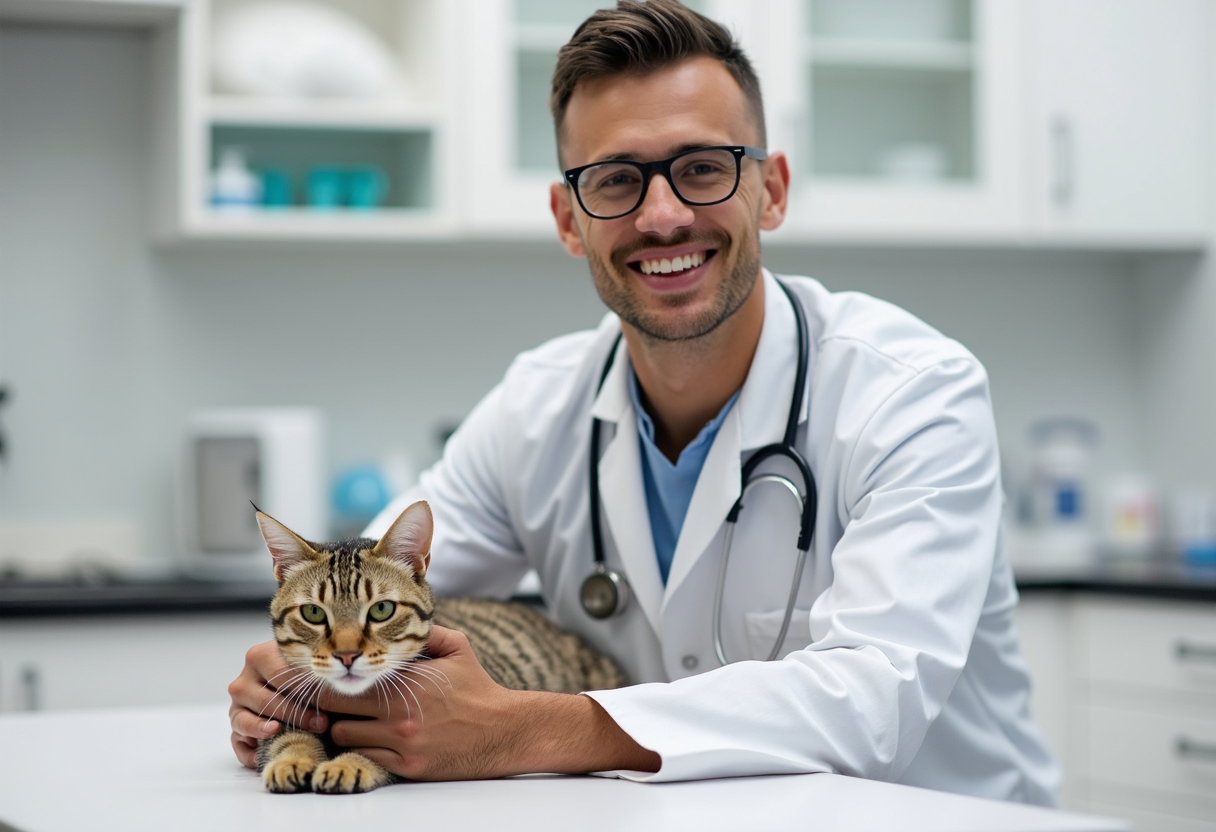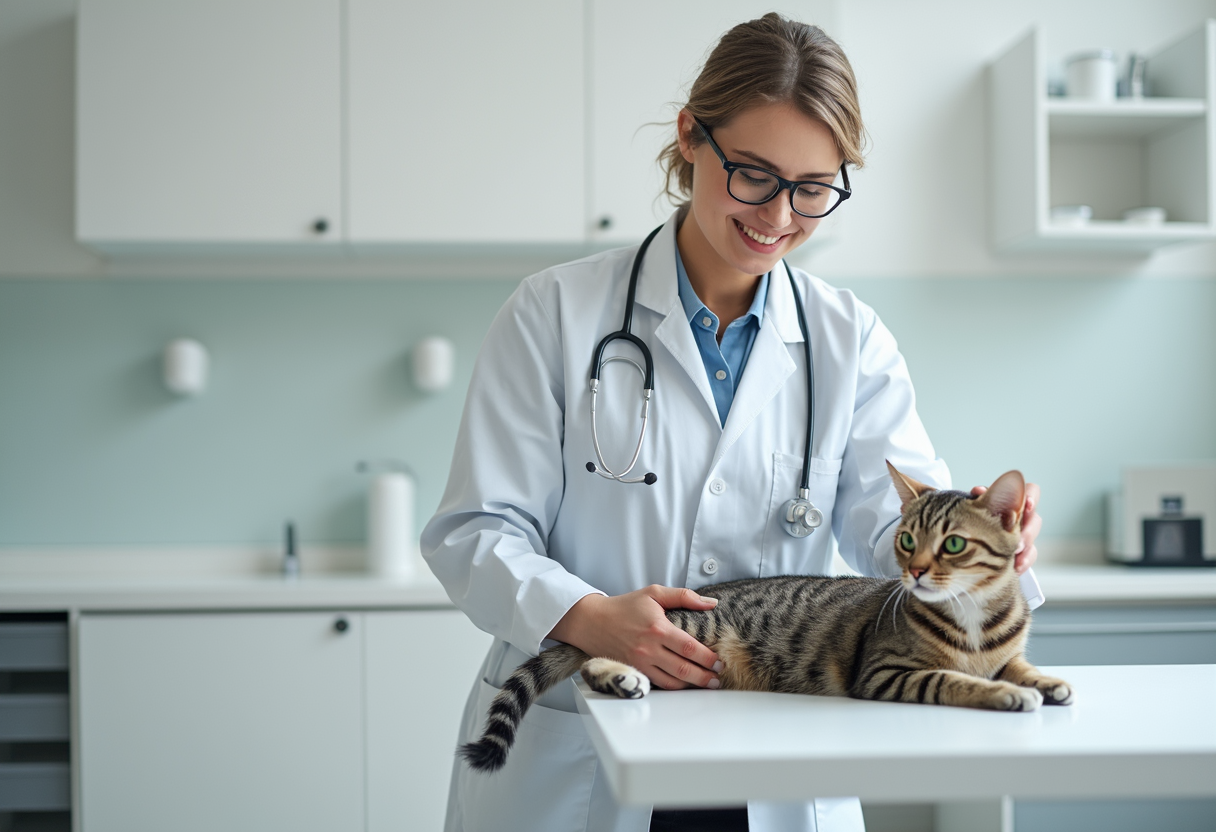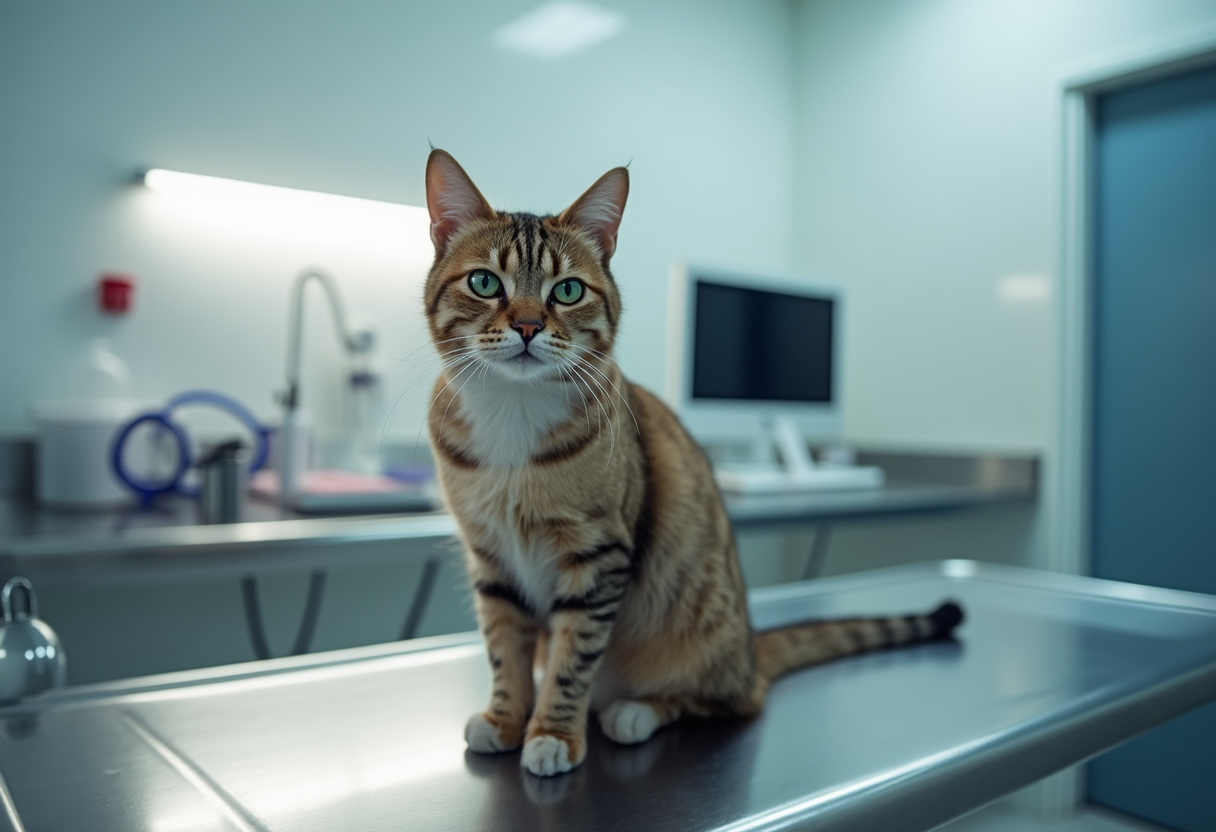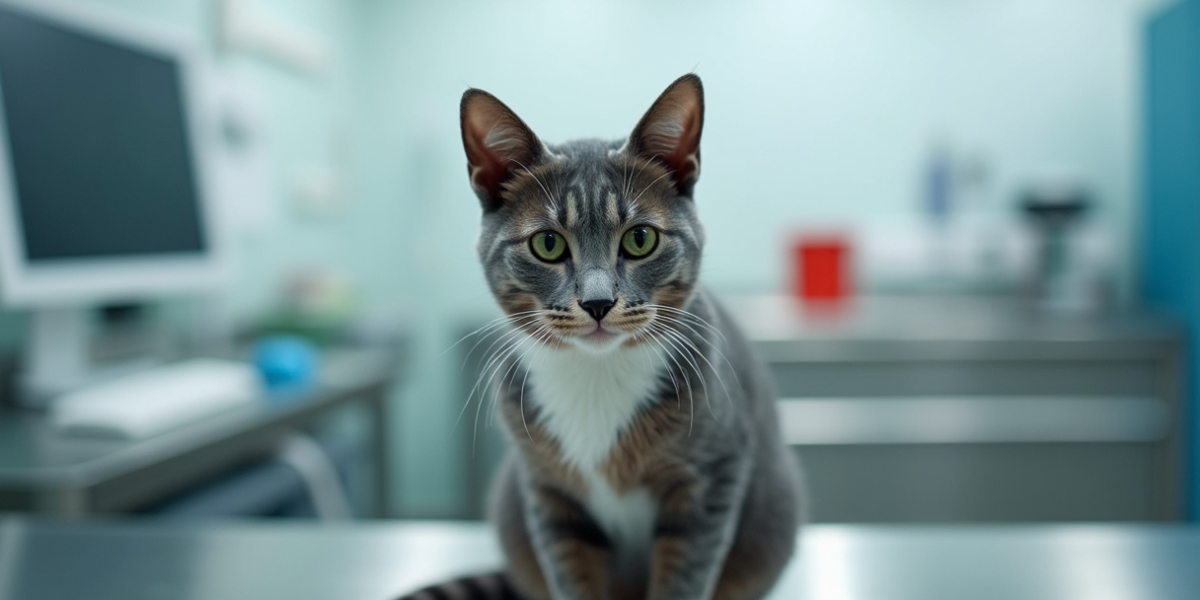As a devoted pet owner, you want nothing but the best for your furry friend, and regular veterinary visits are a cornerstone of ensuring their overall health and well-being. Just like humans, pets require routine check-ups to monitor their health, catch potential issues early, and receive necessary vaccinations. These visits can be a source of anxiety for both pets and their owners, but understanding their importance and what to expect can ease that apprehension. In this essential guide, we will delve into the myriad benefits of regular vet visits, from preventative care and early disease detection to tailored advice on nutrition and behavior. We’ll also walk you through the typical process of a vet visit, breaking down each step so you and your pet can confidently navigate the experience. Join us as we explore how prioritizing your pet’s health through regular veterinary care can lead to a longer, happier life together.

1. The Importance of Regular Vet Visits
Regular vet visits are a cornerstone of maintaining your pet’s health and well-being, serving as a proactive measure rather than a reactive one. Just like humans, pets require routine check-ups to ensure they are healthy and to catch any potential issues early on. These visits allow veterinarians to conduct thorough examinations, monitor your pet’s weight, and assess their overall condition. This is particularly important because many health issues in animals can develop silently, only becoming apparent when they have progressed to a more serious stage.
Moreover, regular check-ups provide an invaluable opportunity for vaccinations, which are essential in protecting your pets from various contagious diseases. Vaccinations not only safeguard your own pet but also contribute to the broader health of the pet community by preventing outbreaks.
In addition to physical health, regular vet visits allow for discussions about your pet’s diet, behavior, and lifestyle. Vets can offer tailored advice on nutrition, exercise, and preventive care, ensuring that your pet leads a healthy, happy life. They can also spot behavioral changes that may indicate underlying health issues, allowing for earlier intervention.
Ultimately, prioritizing regular veterinary appointments is an investment in your pet’s future. By keeping up with their healthcare, you’re not only enhancing their quality of life but also strengthening the bond between you and your furry companion. So, mark your calendar and make those vet visits a regular part of your pet’s health regimen—you’ll both be glad you did!
2. What to Expect During a Vet Visit
When you take your furry friend for a vet visit, it’s natural to feel a mix of anticipation and concern. Understanding what to expect during this important appointment can alleviate some of that anxiety and help you prepare for a smooth experience.
As you arrive at the veterinary clinic, you’ll likely begin by checking in at the reception desk. The staff will ask for your pet’s medical history, any medications they are currently taking, and the reason for your visit. If it’s a routine check-up, be ready to discuss any changes in your pet’s behavior, appetite, or energy levels.
Once in the examination room, the veterinarian will greet you and your pet, often taking a moment to build rapport with your animal. This is crucial, especially if your pet is anxious. The vet will then perform a thorough physical examination, which includes checking your pet’s weight, temperature, heart rate, and overall condition. They’ll examine your pet’s coat and skin for any signs of allergies or parasites, and check their ears, eyes, and mouth to ensure everything looks healthy.
Depending on your pet’s needs, the vet may recommend vaccinations, blood tests, or diagnostic imaging. They’ll explain the purpose of each procedure, so you know why it’s necessary for your pet’s health. If any issues are detected, the veterinarian will discuss potential treatment options and answer any questions you might have.
Finally, the visit will likely conclude with advice on diet, exercise, and preventive care specific to your pet’s breed and age. You’ll leave the clinic with valuable information, potential follow-up appointments, and a sense of reassurance that your pet is on the path to a healthy and happy life. Regular vet visits are essential not only for addressing immediate concerns but also for ensuring your pet lives a long and fulfilling life, so embracing this routine can make all the difference.

3. Key Health Checks and Vaccinations
Regular vet visits are vital to ensuring your furry friend remains healthy and happy throughout their life. During these appointments, a variety of key health checks and vaccinations are conducted to detect potential issues early and keep your pet protected against various diseases.
One of the primary components of a veterinary visit is the physical examination. Vets will assess your pet’s weight, coat condition, dental health, and overall body condition. They check for any signs of discomfort, lumps, or unusual behavior that could indicate underlying health problems. Listening to the heart and lungs helps the vet detect any irregularities, while examining the eyes and ears can catch infections or other concerns early on.
Another essential part of the veterinary service is Vaccinations. Depending on your pet’s age, lifestyle, and health history, your vet will recommend a tailored vaccination schedule. Core vaccines, such as those for rabies, distemper, and parvovirus, are essential for all pets, while others—like kennel cough or Lyme disease—may be recommended based on your pet’s activities and environment. Keeping your pet’s vaccinations up to date not only protects their health but also helps prevent the spread of diseases to other animals.
Additionally, routine blood tests and screenings can provide valuable insights into your pet’s inner health. These tests can identify issues such as organ function, anemia, or parasites, ensuring that any potential health problems are addressed before they become serious.
Understanding the importance of these key health checks and vaccinations allows pet owners to take a proactive approach to their pet’s health care. By scheduling regular vet visits, you’re not just ensuring your pet receives necessary treatments; you’re also helping to foster a long, healthy, and happy life for your beloved companion.
4. Addressing Common Concerns and Anxieties
Taking your beloved pet to the vet can often evoke a mixture of excitement and anxiety, both for the pet and the owner. It’s entirely natural to have concerns about your furry friend’s health check-ups, but understanding these common anxieties can help you prepare and make the experience smoother for both of you.
One prevalent concern among pet owners is the fear of potential diagnosis. The thought of hearing bad news can be daunting; however, regular vet visits are primarily preventative. They allow your veterinarian to catch potential health issues early on, which can often lead to more effective treatment and better outcomes for your pet. Remember, knowledge is power. By staying informed about your pet’s health, you can take proactive steps to ensure a long, healthy life together.
Another common source of anxiety is the actual visit itself. Many pets associate the vet’s office with uncomfortable experiences, such as vaccinations or examinations. To ease this unease, consider desensitizing your pet to the vet environment. Take them for a few non-medical visits to the clinic, allowing them to become familiar with the sights, sounds, and smells of the space. Offering treats and praise during these visits can help create a more positive association.
Additionally, questions about the cost of veterinary care can weigh heavily on pet owners’ minds. It’s essential to have an open dialogue with your veterinarian about costs and treatment options upfront. Many clinics offer payment plans or can suggest alternative treatments if finances are a concern. Remember, investing in your pet’s health now can prevent more significant costs down the line.
Lastly, don’t hesitate to communicate your concerns with the vet staff. They are there to support you and your pet. Whether it’s discussing behavioral issues or asking about specific treatments, your vet is a valuable resource. By addressing anxieties and concerns head-on, you can foster a more trusting relationship with your veterinarian, ensuring your pet receives the best care possible.
In conclusion, while it’s normal to feel apprehensive about regular vet visits, understanding and addressing these concerns can transform them into a more positive experience. By prioritizing your pet’s health and well-being through routine check-ups, you’re taking a crucial step in safeguarding their happiness for years to come.
5. Tailored Advice for Your Pet’s Needs
When it comes to ensuring the health and well-being of your beloved pet, regular vet visits are paramount. However, these appointments are more than just routine check-ups; they are tailored experiences designed to cater specifically to your pet’s unique needs. Each animal is different, and a one-size-fits-all approach simply doesn’t apply in veterinary care.
During your visit, your veterinarian will take the time to discuss your pet’s lifestyle, age, breed, and any pre-existing health conditions. This personalized approach allows them to recommend vaccinations, dietary adjustments, and preventive measures that are specific to your pet’s requirements. For example, a high-energy Labrador may need a different exercise and nutrition plan compared to a senior cat with mobility issues.
In addition to routine vaccinations and check-ups, your vet will also provide insights into behavioral health, dental care, and parasite control, ensuring a comprehensive assessment of your pet’s overall well-being. They may suggest screenings or tests based on your pet’s age and breed predispositions, which could help catch potential health issues early on.
Remember, your vet is not just there for when your pet is unwell. Their expertise can significantly enhance your pet’s quality of life through tailored health plans and preventive care strategies. So, when you walk through the clinic door, you can feel confident knowing that your pet is receiving care that is as unique as they are. Regular vet visits pave the way for a happier, healthier life for your furry friend, allowing them to thrive well into their golden years.

6. Building a Positive Relationship with Your Veterinarian
Building a positive relationship with your veterinarian is one of the most beneficial steps you can take for your pet’s health. Just as you rely on your family doctor for your own well-being, your veterinarian serves as a critical partner in your furry friend’s healthcare journey. A solid rapport with your vet fosters open communication, ensuring that you feel comfortable discussing any concerns, questions, or changes you’ve observed in your pet’s behavior or health.
To nurture this relationship, it’s essential to start by being an active participant in your pet’s care. Arrive prepared for your appointments with a list of questions or topics you wish to discuss. This not only shows your veterinarian that you are engaged, but it also allows for a comprehensive dialogue about your pet’s specific needs. Be honest about your pet’s lifestyle, diet, and any potential issues; this transparency helps your veterinarian make informed decisions about care and treatment.
Furthermore, visit your veterinarian regularly, not just when your pet is unwell. Routine visits create familiarity and trust, allowing your pet to feel more comfortable during examinations. Over time, your veterinarian will get to know your pet’s unique personality, which can make a significant difference during stressful situations, such as vaccinations or procedures.
Don’t hesitate to ask for recommendations on preventative care, training tips, or dietary advice. A good veterinarian will appreciate your interest in your pet’s overall well-being and will be happy to provide guidance tailored to your specific circumstances. Finally, remember to express your gratitude for their care—whether through a simple thank you at the end of an appointment or by sharing positive feedback online. A strong partnership with your veterinarian can greatly enhance your pet’s health and happiness, creating a lasting bond founded on trust and mutual respect.
In conclusion, regular vet visits are an essential cornerstone of your pet’s health and wellbeing, ensuring they lead a long, happy life by catching potential issues before they escalate. By prioritizing these check-ups, you’re not only safeguarding your furry friend against preventable diseases but also establishing a vital relationship with your veterinarian, who can provide invaluable advice tailored to your pet’s specific needs. With PookieTales, you can rest assured that you’re equipped with the knowledge and tools necessary for navigating these visits with confidence. Whether it’s understanding vaccination schedules or recognizing signs of illness, we hope this guide has empowered you to take proactive steps in your pet’s healthcare journey. Remember, a little preparation goes a long way in making each visit a productive and stress-free experience. Thank you for joining us, and here’s to many more happy, healthy moments with your beloved companion!


